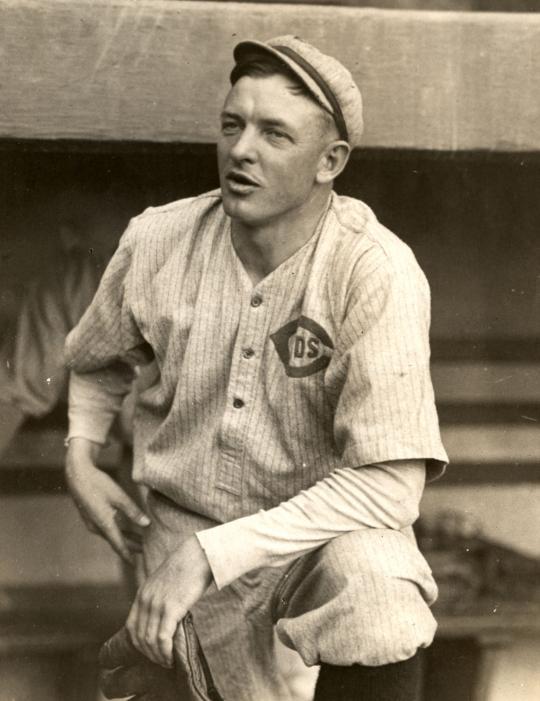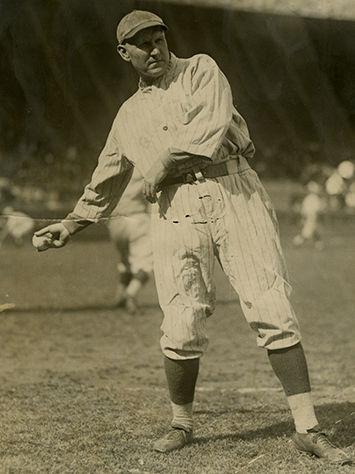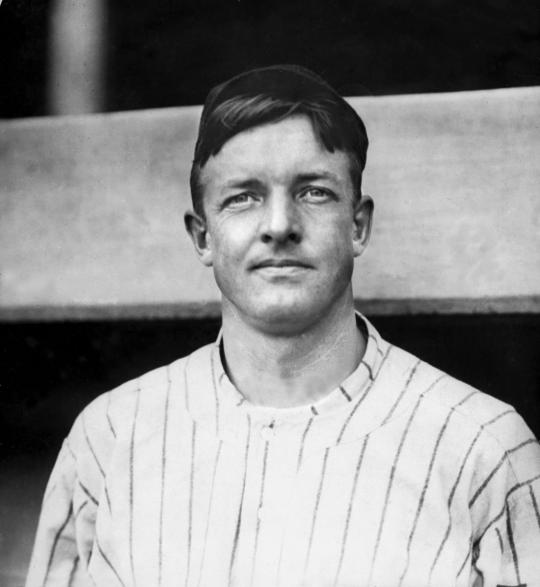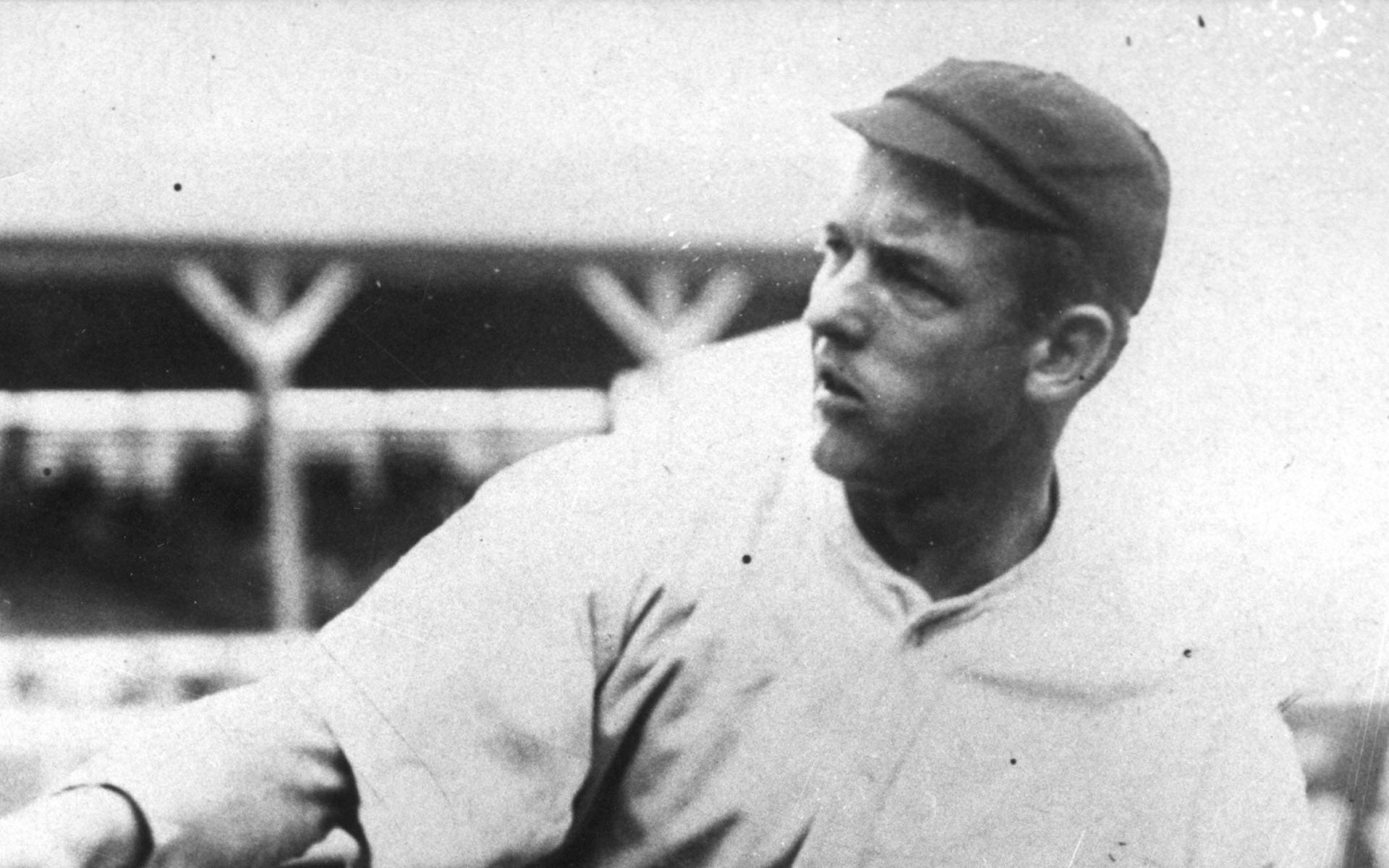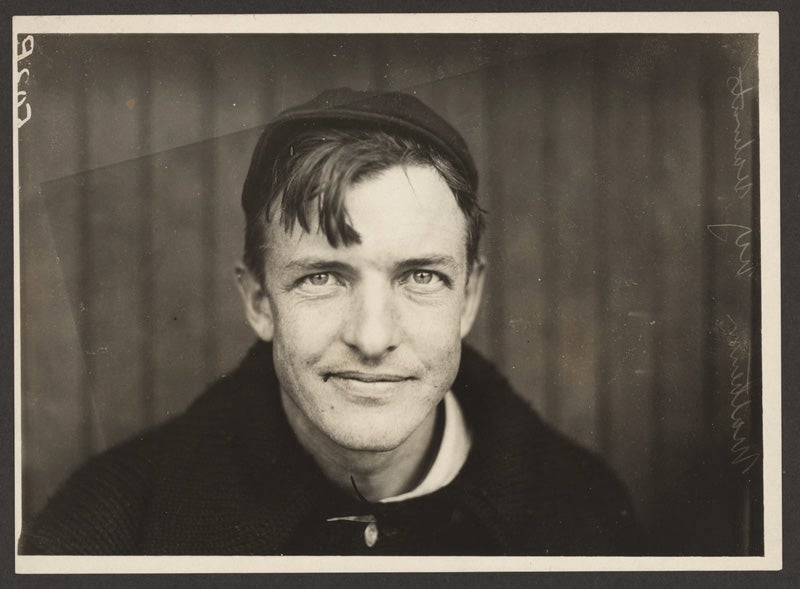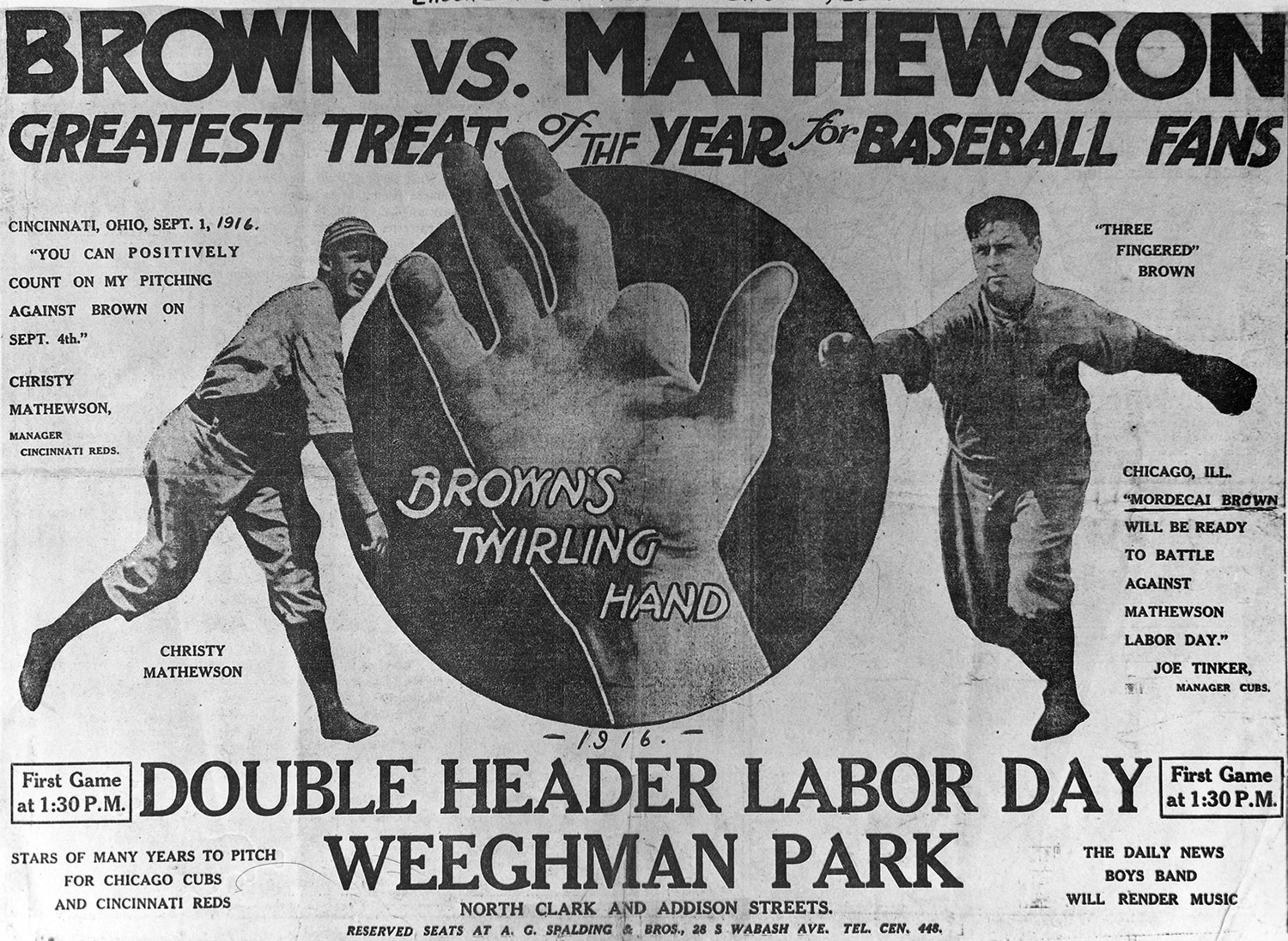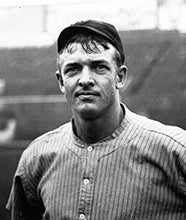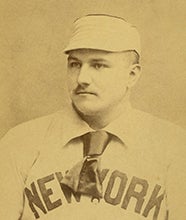- Home
- Our Stories
- Giants changed history by trading for Mathewson
Giants changed history by trading for Mathewson
It was the tale of two opposite ends of a career.
Amos Rusie had starred as a dominating pitcher for the New York Giants for eight seasons highlighted by five straight seasons of 30 or more wins (1890-1894), while Christy Mathewson was an unknown 20-year old just drafted by the Cincinnati Reds for a price of $100.
On Dec. 15, 1900, a trade between these two future Hall of Famers occurred in what turned out to be one of the most lopsided deals of all-time.
Before the trade, John Brush, the Cincinnati Reds owner, was in negotiations with the New York Giants’ owner, Andrew Freedman about buying the Giants. Although Rusie compiled 248 career wins in just nine seasons, Freedman agreed to trade away the Hoosier Thunderbolt to Cincinnati in exchange for Mathewson. It turns out that Freedman was fully aware that Rusie’s arm was failing and his days were numbered.
The trade was disliked by the fans in New York. A reporter for the New York Press-Telegram described his thoughts in saying, “The Giants without Rusie are like Hamlet without the Melancholy Dane.”
A few months after the trade, Brush went on to buy the New York Giants from Freedman, receiving everything he had set out to get in the trade. He was finally in the New York market and was able to bring his superstar-to-be pitcher along with him.
Mathewson went on to win 373 games in 17 seasons with the Giants, including a streak where he won 22 games or more in 12 consecutive seasons.
He led his club to a championship in 1905, throwing three shutouts in six days in the World Series against the Athletics. Then in 1908, Matty set the modern National League record with 37 wins in a single season.
Rusie on the other hand, pitched just three games with the Reds before calling it quits. He did not win a single outing while giving up an average of 8.3 runs per games compared to an average of 1.85 runs per game his entire career previously.
Mathewson, who passed away in 1925, was elected to the Hall of Fame in 1936 with the inaugural class.
Rusie was elected to the Hall of Fame in 1977. He passed away on Dec. 6, 1942.
Matt Kramer was a public relations intern at the National Baseball Hall of Fame and Museum

